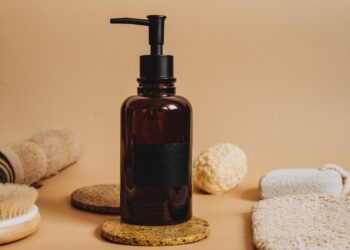Maintaining long, shiny hair is a desire for many women and men alike. However, as convenient as it may sound, achieving this requires effort and a consistent hair care routine. One of the trending hair care products for long hair is hair oil. Hair oils are designed to help improve hair’s texture, strength, and shine. But like any other product, there are pros and cons. This article will delve into the benefits and drawbacks of using hair oil for longer hair.
Why do people use hair oils?
People use hair oils for various reasons. Some use it to minimize hair fall, prevent dandruff, promote hair growth, improve texture, and reduce frizz. Others use hair oils to get a natural and glossy look. Whatever the reason, choosing the right oil appropriate for your hair type and texture is essential.
Pros:
1. Nourishes hair: Hair oils contain essential nutrients that penetrate the hair shaft and hydrate the hair, making it moisturized and lustrous.
2. Strengthens hair: Regular use of hair oil can strengthen the hair strand from the root, reducing hair fall and breakage.
3. Improves scalp health: Hair oiling is also ideal for dry and flaky scalp. Massaging the oil into the scalp enhances blood flow, stimulating hair growth and preventing dandruff.
4. Reduces frizz: Hair oils contain ingredients that reduce frizz and ensure that the hair remains sleek and smooth.
5. Easy to use: Applying hair oil is easy; you can adjust the amount according to your hair length and texture.
Cons:
1. Overuse can weigh down hair: Applying too much hair oil can make your hair greasy, and this can affect the volume and texture of your hair.
2. It can attract dirt: Some hair oils can attract dirt and grime. This can be a concern if you have a hectic lifestyle that doesn’t allow for hair wash regularly.
3. May cause allergies: Some hair oils may contain natural and synthetic fragrances that may trigger allergies or an adverse reaction when applied to the scalp.
4. Might not work for all hair types: As with most hair care products, hair oil may not work for all hair types. The oil may not be absorbed; instead, it may sit on the hair and scalp.
What types of hair oils are the best to use?
Choosing the right oil for your hair type can be overwhelming. But fear not, several types of hair oils cater to different concerns. Coconut oil is a popular choice for those with dry and damaged hair. It’s rich in fatty acids and vitamins that can penetrate deep into the hair shaft, providing nourishment and strengthening from within.
On the other hand, Jojoba oil is perfect for those with oily hair. This oil closely resembles the natural sebum on our scalp, making it easily absorbed without leaving a greasy residue. No matter what your hair concern may be, there’s sure to be an oil out there that can assist you in achieving your hair goals.
Does it matter the time of year to use hair oil for growth?
Caring for your hair can be challenging, especially when the seasons change. Hair tends to get dry and frizzy during the winter, while sweat and humidity in the summer can cause dandruff and other scalp-related issues. However, regardless of the season, using hair oil can provide numerous benefits for your hair.
Especially during the winter, using hair oil regularly can help moisturize and hydrate your locks, promoting healthier and glossier hair. During the summer, hair oil can help prevent dandruff and other scalp-related problems and nourish your hair. So, whether you’re battling the cold or the heat, using hair oil is a simple yet effective way to ensure your hair stays healthy and vibrant all year round.
Conclusion
In conclusion, hair oil care offers many benefits for maintaining long, healthy, and glossy hair. However, these benefits come with drawbacks, and it is essential to use the right quantity of oil to avoid greasiness, itching, or weighing down your hair. Always pick an oil that suits your hair type and texture, and use it as per the instructions. With the right hair oil care and a hair care routine, you can achieve and maintain healthy and luscious hair all year round.








